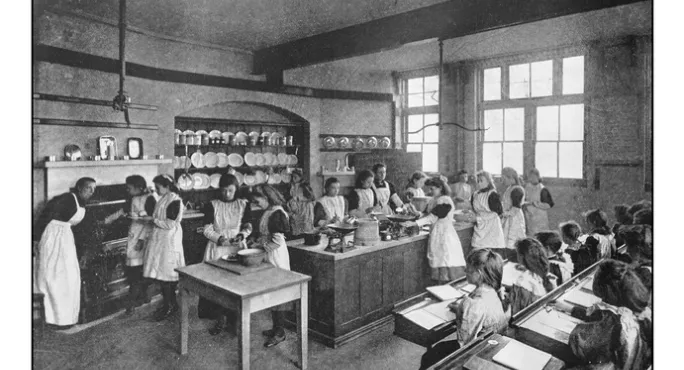There’s a lot of talk in teaching about the “good old days”.
But were they really all that good?
Quick read: 10 things only fellow teachers understand
Quick listen: Podcast: ‘No school is immune from gender stereotypes’
Want to know more? Teachers deserve a thank you every day of the year
It is true that, in previous decades, schools had more freedom in terms of what they taught and how they taught it, but did that translate to high standards of education for all?
I would argue not. Here’s why:
A bit of accountability is better than none
Yes, too much accountability is definitely a bad thing, but no accountability was a disaster.
I had an art teacher who, before leaving the classroom to have a coffee and a natter with the other art teacher, used to tell us that he was recording us on a tape machine and would listen back to it later and reprimand anyone who was not getting on with their work.
Naturally, we stopped it recording the instant he went out of the room. Mayhem ensued. Nothing was done about it.
I did not choose art for GCSE.
Stories I have heard from others suggest that this was at the tame end of the spectrum of experiences that children had.
Corporal punishment has gone
I am too young to remember teachers hitting children with the cane, but I do remember my primary school teacher threatening to pull down a boy’s pants and “spank his bare bum in front of everyone”. I, for one, am relieved we have moved on from this.
We’re better at dealing with bullying
Bullying was generally identified as physical assault when I was at primary school in the 1980s. There was not, in my experience, the understanding that bullying could also include emotional abuse.
Recognising and standing up to homophobic, racist and sexist attitudes has meant that we have progressed as a society.
Schools mostly do an excellent job of promoting equality, although there is still work to be done.
Support for SEND pupils has improved
A more inclusive attitude has been a huge leap forward for British schools, certainly in my lifetime.
I can remember when I was at primary school there being a room where “the other children” (those with additional needs and disabilities) went. Like all children, I was curious; I wanted to get to know them, to play with them, but for the majority of the time we were separated.
Inclusion, while not perfect, has been a significant improvement.
Today, there is greater awareness of hidden disabilities, such as autism, and whilst there is arguably still a lot of work that needs to be done in terms of educating people, we are a lot further forward than we were only 10 years ago.
Girls get a better deal
Progress has been made in ensuring that girls get the same opportunities in education as boys. In fact, girls generally outperform boys now.
However, there are still fewer females studying physics, computer science and engineering, plus males, on average, end up earning more than females, suggesting there is still a way to go.
The school buildings are better
When I was in Year 7, I was excited to learn that my classroom would be in the exotic-sounding “annexe” (I am from Lowestoft and had lived a sheltered life). I was less excited come November when temperatures dropped.
Since the 1990s, many school buildings have been improved, thanks to the Building Schools for the Future (BSF) programme.
The scheme was not without its critics, though. Over half of the BSF scheme was funded by Private Finance Initiatives (PFIs), which took financial control away from local authorities and tied schools into contracts lasting typically 25 to 30 years. Some have viewed this as privatisation through the backdoor.
Obviously, there is a lot of work still to do in improving teaching, but viewing days gone by as better is, in my view, highly problematic.
Gemma Corby is a freelance writer and former special educational needs and disability coordinator




